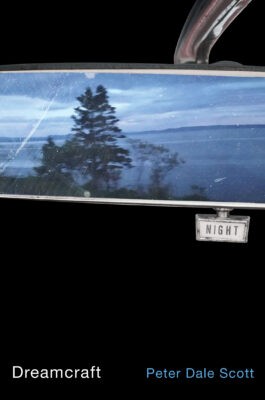Peter Dale Scott’s most recent collection Dreamcraft is a book of truth. The volume’s reflections on meaningful connections and the possibility, if not significance, of transcendence begin with the assertion that we require “an other / that we do not know” to even recognize ourselves. We “only become human / from interactions with others” and we are always encompassed by an elusive “moreness” that seems to have emerged as a source of comfort for Scott only after lifelong contemplation.

Dreamcraft
Peter Dale Scott
McGill-Queen’s University Press
$19.95
paper
120pp
9780228020981
Tell me! What is it in our
bicameral brain that makes
obfuscation of mere fact
so much more beautiful?
In such moments, Dreamcraft prompts self-awareness, reminding us that we are part of the difficult world it describes.
Yet the collection moves beyond political concerns, as the poet reaches out on the page to many fellow artists, writers, intellectuals, and loved ones that have enriched his life. In numerous open-hearted, admiring, and often elegiac poems, Scott expresses admiration, love, and forgiveness in works dedicated, for instance, to his wife Ronna Kabatznick, Czeslaw Milosz, Robert Silvers, and Leonard Cohen. Dreamcraft thus assembles a literary record of the poet’s past and present relations that breathes and will continue to breathe through its readers. Perhaps, the book thereby suggests that the “interactions with others” that make ourselves legible are the truest form of moreness, and that only honest poetry can capture these interactions beyond the fleeting moment of their occurrence.mRb






0 Comments